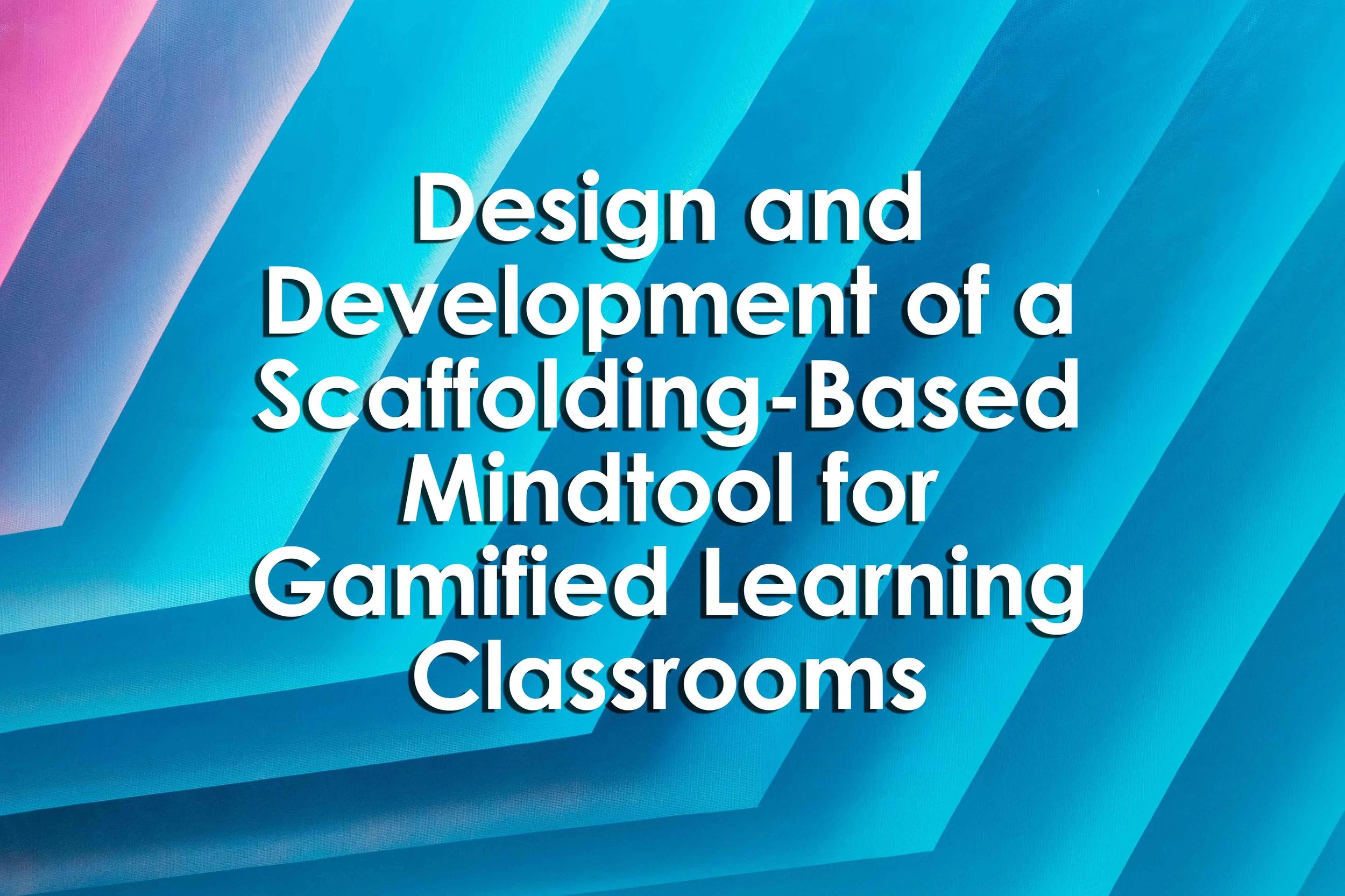Design and Development of a Scaffolding-Based Mindtool for Gamified Learning Classrooms
Design and Development of a Scaffolding-Based Mindtool for Gamified Learning Classrooms
Design and Development of a Scaffolding-Based Mindtool for Gamified Learning Classrooms
By Yu-Chi Chen, Huei-Tse Hou, and Chang-Hsin Wu
Abstract
“A scaffolding-based mind tool was designed to allow teachers to easily create lesson plans for in-class gamified activities and to embed various scaffoldings in the lesson plan design. The purpose of this study was to investigate the learning outcomes of a scaffolding-based mind tool integrated with gamified learning activities applied to a science course. The study was conducted to investigate students' learning outcomes, flow, and qualitative feedback on the scaffolding-based mind tool. A total of 134 high school students participated in the experiment. The results showed that the gamified activity with the scaffolding-based mindtool significantly improved students' learning effectiveness, but the learning effectiveness did not differ significantly from that of the students in the lecture-based instruction. In addition, the study found that the learners' flow was high, the students were engaged in the activity. The qualitative feedback analysis also revealed high positive evaluations of the usefulness of the gamified activity, mind tool, and scaffolds. In addition, students with low prior knowledge or low learning effectiveness had significantly higher active engagement in flow than those with high prior knowledge/learning effectiveness.”
Reference
Chen, Y., Hou, H., &; Wu, C. (2022). Design and development of a scaffolding-based Mindtool for gamified learning classrooms. Journal of Educational Computing Research, 073563312211010. doi:10.1177/07356331221101081 https://journals.sagepub.com/doi/abs/10.1177/07356331221101081
Keyword
Scaffolding, mindtools, gamification, learning effectiveness, flow, research

